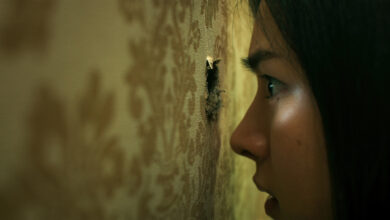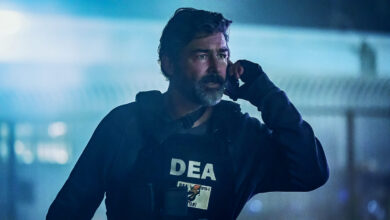The Power Of The Dog: The Meaning Of The Title And The Scene Of The Hill Explained By Director Jane Campion
The title of The Power of the Dog refers to a psalm in the Bible: director Jane Campion explained the meaning of the film and the scene of the hill.
Based on a 1967 western novel by Thomas Savage, Jane Campion’s The Power of the Dog returns to tell the hidden side of the wild American frontier after titles such as The Sisters Brothers and the recent, highly acclaimed First Cow. Already in the 1960s, the novelist Savage tried with his novels to tell the end of the first phase of the conquest of the American West, in favor of a more orderly society based on law and commerce. This change marked the end of a wild age in which men often had to repress their more human side and feelings in order to survive in a brutal society and get rich.

The Power of The Dog Tittle Explained
Dog Power is set in 1925 in Montana and tells the story of the Burbank brothers. In the film we understand that a new era is beginning: the arrival of cars, the steam train, the desire of the common population to create a less dirty and more refined society are clear signs of the swan song of that West experienced by the saddles of horses, in contact with nature and animals. Also in this sense two scenes must be interpreted that explain the mysterious title of the film: what is the power of the dog to which it refers?
The Mystery Of The Hill In The Power of The Dog
The first reference to a dog in the film is about a hill seen from the Burbank house. There is curiosity among Phil’s underlings as to why the chief often stops to observe the hill visible in the distance from the property. The profile of the same is bare, with no particular elements that attract attention. To those who ask him what he observes, Phil (Benedict Cumberbatch) never gives a precise answer and in turn asks what he sees on the hill. The only information Phil gives to his underlings is that his mentor Bronco Henry also saw in the hill what he observes.
To give the solution to the riddle is the young Peter (Kodi Smit-McPhee), unaware of the mystery itself. After a quick glance at the hill, the boy says he sees the profile of a barking dog. Phil is surprised and almost moved by the boy’s sensitivity, who instinctively sees in nature that same image and poetry of his brutal mentor Bronco Henry.
In this passage the film underlines how, although Phil tries to hide it, he too has that same sensitivity and education that he despises in the boy. On the other hand, it is he who studied classical literature at Yale University, who has an intense artistic and musical sensitivity, which however he suppresses in favor of a sadistic and brutal attitude towards others. Leading Phil is the – at times unhealthy – example of Henry Bronco, whom he idolizes and probably loved carnally as well. Subjected to the same brutal teachings, Brother George seems less enthusiastic about this upbringing. Phil instead would like to live forever according to the dictates of the man who saved them and deeply suffer from his brother’s will to marry and change the balance of things.
The Meaning Of The Title The Power Of The Dog
The meaning of the film’s title is alluded to in the ambiguous final scene, all to be interpreted. What is certain is that Peter, worried about the fate of his mother to whom he seems morbidly attached, has found a way to kill Phil without being discovered. In the final scene of the film we discover that the boy has kept the rope that the cowboy prepared for him and through which he poisoned him with anthrax. It is the boy who reads verse 22:20 in a copy of the Bible, in the book of Psalms, from which the writer Savage took inspiration for the title:
Save the soul from the sword, save the heart from the power of the dog.
Director Jane Campion explained the title of the film in an interview with IndieWire the psalm is a sort of warning to the faithful and refers to the crucifixion of Jesus. It is Jesus himself in the story who speaks of a “pack of dogs that surrounds and besieges “, dividing his garment. The reference is to the scene of the centurions who, at the base of the crosses of Jesus and the two thieves, are playing dice for his robes. The director explained:
As the title points out, it’s sort of a warning. The power of the dog is made up of all those impulses, the deep and uncontrollable ones, that can come out and destroy you.
In Phil’s case the impulses that lead him to destruction are the homoerotic ones that have tied him to Bronco Henry and that fatally attract him to the young Peter, making him unable to see the malice of the actions in the boy’s actions.
What Does The Title of The Power of the Dog Mean?
It is the quote from a psalm in the Bible, referring to the crucifixion of Jesus. From the cross Jesus sees the centurions divide up his garments and sends a heartfelt warning to save the heart from the power of the dog. The expression refers to the deepest and most irrepressible instincts of the human being, even if more destructive. For a complete explanation of the title made by director Jane Campion, read the dedicated in-depth study.
What Does The Hill Scene Mean in The Power of The Dog?
Peter immediately sees the profile of the canal barking in the hill observed by Phil and the cowboy is amazed by the sensitivity and imagination of the boy. His mentor Bronco Henry also saw the same figure.
The scene alludes to the fact that Henry, Phil and Peter share the same artistic intelligence and sensitivity. Phil however, despite having studied ancient literature and is versed in music, represses this side of his character, in favor of a macho and brutal attitude. For a more in-depth picture of the meaning of the scene, you can read the analysis of the same.




